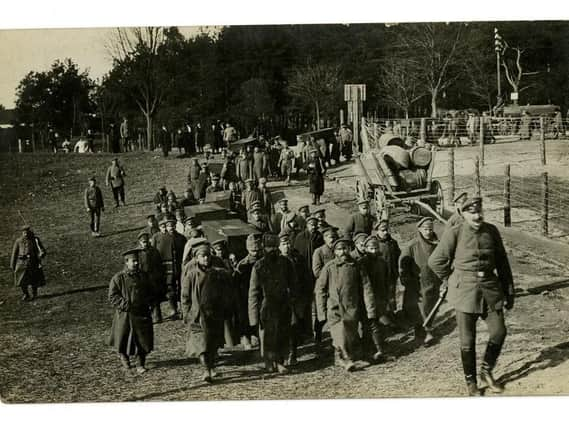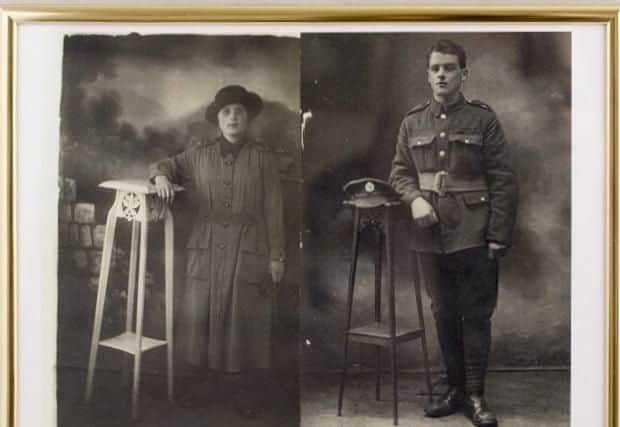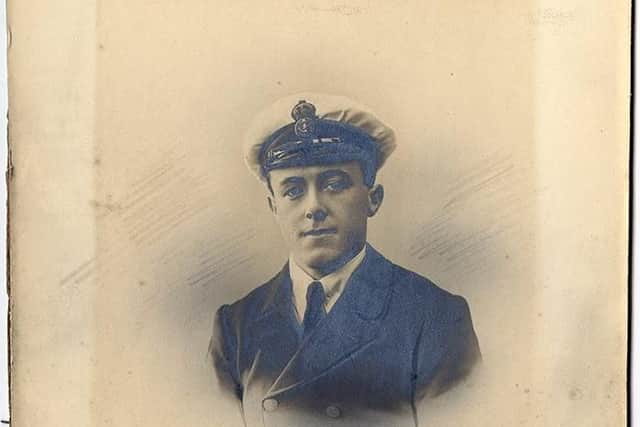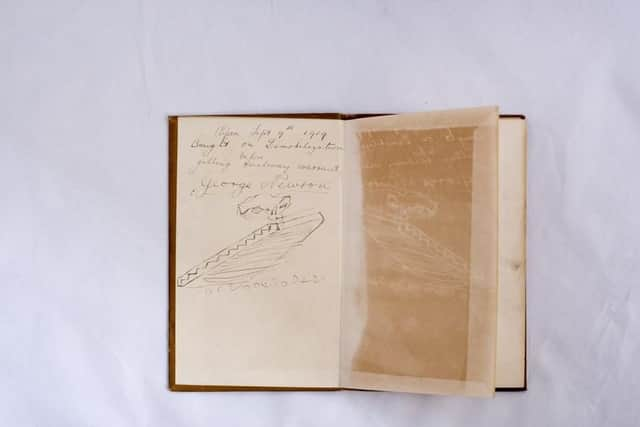The long journey home for Doncaster's soldiers, Armistice Day 1918. Â


Through personal accounts and newspaper reports, Lynda has been exploring what life was like for Doncaster's men in the weeks surrounding Armistice 1918, as part of Doncaster 1914-18, a community heritage project supported by National Lottery Players for the Heritage Lottery Fund
(HLF) to mark the centenary of the First World War.


Although Armistice had been announced on Novembe 11, 1918, getting Doncaster's men back home was a huge undertaking '“ not to be achieved in a day. What's more, it would have been unwise to send men home until the actual peace treaty was signed in case fighting broke out again.
Advertisement
Hide AdAdvertisement
Hide AdThe treaty wasn't signed until July 1919. This meant that many men were stranded abroad, often for considerable lengths of time.
Soldier George Newson spent nine months waiting for his travel permit, playing pantoon and doodling in his book, '˜Rhymes of a Rifleman' to pass the time, eventually returning home in September 1919. George's poem book illustrates how memories of conflict clearly played on these young men's minds, including friends who had lost their lives, and the horrors of the battleground. Food also seems to have been a major preoccupation, as the poet T. B. Clark writes in his '˜Commentary on Rations':
'The record up to date has been, One tin of jam among sixteen;


We used to get served out with meat, That had a smell like sweaty feet,
Advertisement
Hide AdAdvertisement
Hide AdAnd now, the bully is no good, It's just like eating lumps of wood,
And the biscuits, they are great '“Â We sometimes use them, as a plate'¦'
Many men were caught on the battle-lines when Armistice was announced. Able seaman Ernest Smith was killed in action on the eve of Armistice, while Harold Burden Hipkins was serving in France when the news filtered through on November 11, 1918. Harold wrote a heart-breaking account of Armistice Day in his diary (written in 1965), an experience shared by so many local men:


'Now it was our turn to advance'¦ it was tiring trying to catch the Germans up, we were on the move all the time, no respite for our tired bodies, even when Armistice Day came we were moving into the unknown where danger was concerned, roads were laid with mines, ammunitions trains were being blown up'¦ for us there was no rejoicing at the end of the war, it has all been so senseless and futile'¦ At home there was great rejoicing but it wasn't for us to indulge, our memories were too deep, we needed rest, the horror of it all was too near to us'¦ yet it was a triumph to know it was all over.'
Advertisement
Hide AdAdvertisement
Hide AdThe long journey home was even more complicated for Doncaster's prisoners of war. Many had suffered terrible treatment in the war camps, including untreated battle injuries, starvation and beatings. They were 'back from a living death', wrote the Doncaster Chronicle on December 13, 1918 about three Doncaster men - Private John Allen Scott, Corporal Harold James Beaumont, and Private Thomas Ernest Stones - who were rushed straight to hospital on their return home that winter. Thomas, just 19 years old, arrived 'in a state of collapse'¦ (he) was a bag of bones, thin and emaciated, and on the journey back'¦ had to be fed on brandy.'
After their harrowing experiences, many prisoners of war were treated like heroes '“ both in Europe and Britain - with special trains to carry them home and jubilant receptions crowded with people insisting they take gifts of cigarettes, tobacco and other wartime '˜treats'. One Doncaster soldier,
Private Harry Buffham, remembered: 'I slept in a champion bed at Rotterdam'¦ with sheets, pillows, and all these things. I wondered what had got me, and hardly knew how to get in bed.' (reported in the Doncaster Chronicle, November 29, 1918).
To honour the words of George Newson, it's so important that we 'Remember the'¦ gallant men, who valiantly behaved, Who nobly sacrificed themselves, that others might be saved'.
Advertisement
Hide AdAdvertisement
Hide AdThe project team at Doncaster 1914-18 are appealing to local people to uncover more insights into Doncaster's men during those final months of the First World War. By sharing their own family or neighbourhood stories and photographs on www.doncaster1914-18.org.uk, local people are not only helping to piece together Doncaster's wartime past, but also helping to build an everlasting digital memorial to our First World War local heroes, free for everyone to use and share.Â
To find out more, including news of events, exhibitions and roadshows taking place around the borough of Doncaster,
visit www.doncaster 1914-18.org.uk.